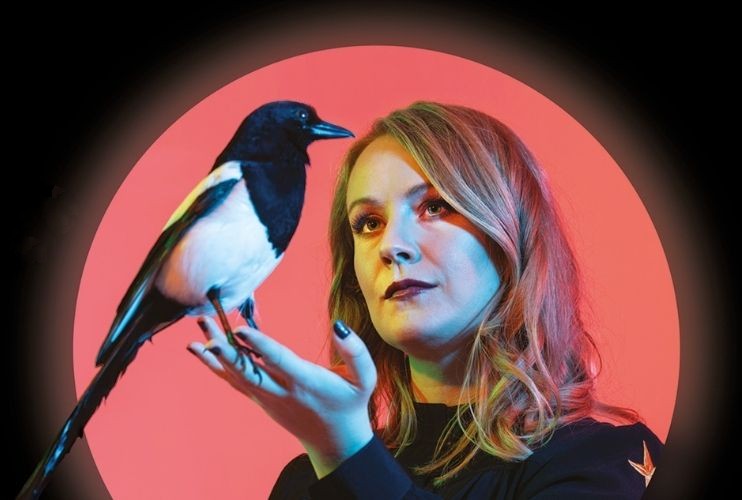At first, this show seems stranded between poetic horror and funny self-help, as if Bridget Jones had wandered into The Raven (only with a magpie). But it’s a slow burner and by the end is absorbing. Writer and actor, Molly Naylor, plays a version of herself who was traumatised by a magpie at a young age. The magpie then stalks her, and she develops strategies for getting the magpie to go away.
Most of these strategies are destructive, although the first one, storytelling, gave her a successful career path. The second one, boozing, was not so fortunate. It led to unwise relationships, shame, humiliation and general problems with her health. But anything that makes the magpie go away, gets noted, and replicated.
By fifteen, she’s discovered romance, and will go on to specialise in ‘sad men in their thirties’. She describes love as a ‘localised glitter storm’. She also has a conflicting need to be special through her work, and to be a saviour, which means sacrificing her work to look after emotional wrecks who are probably taking advantage. Her friends with conventional relationships, children and wood burners, are aghast.
It then becomes slightly meta as we realise she’s writing the magpie story as a screenplay, pitching it to young men called Josh, and feeling mortified in the process as they struggle with the concept of someone living in ‘not London’. She’s in Norwich, which they think is in Scotland. The magpie, it turns out, is a metaphor for trauma, and trauma is hot right now.
Lockdown brings on a burnout and the story is topped and tailed with an appointment in a fertility clinic. Sometimes it’s so conversational that it seems like a chat in a coffee shop with an old friend. And the strategies are a huge part of our culture. Some of them are the backbone of the economy. If we didn’t shop to feel better it would collapse. There are some brilliant descriptions, ‘blunt English silence, the kind that comes after a faux-pas.’ The set is a table, chair, ladder and a mic stand. The message is ‘unfollow your dreams.’ There’s a slightly eerie air of a reverse cult. One telling us not to join. Give up your false Gods and get out and live.


Comments